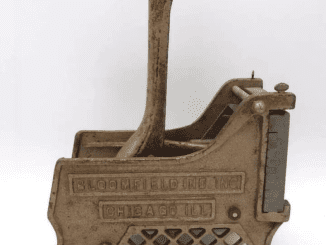The invention of the transistor radio receiver in the 1950s marked a significant turning point in the history of technology and communication. This revolutionary device, which replaced the bulky vacuum-tube radios of the past, ushered in a new era of portable, energy-efficient, and durable entertainment.
The first commercially successful transistor radio, the Regency TR-1, hit the market in 1954 and quickly became a cultural phenomenon. Its compact and portable design, powered by transistors instead of vacuum tubes, made it a more practical and accessible choice for consumers. The innovative features of the Regency TR-1 paved the way for a wave of transistor radios that would transform the way people consumed media and entertainment.
One of the most significant impacts of the transistor radio was its ability to democratize access to information and entertainment. Prior to its introduction, radios were often bulky, expensive, and confined to the home. The transistor radio’s portability allowed people to take their music and news with them wherever they went, whether it was listening to the latest hits on the beach, catching up on current events during a morning commute, or enjoying a baseball game at the park.

The transistor radio also played a crucial role in bridging the gap between urban and rural areas. In a time when access to information and entertainment was often limited by geographic location, the transistor radio provided a means for people in remote or underserved communities to stay connected and engaged with the wider world.
The transistor radio had a profound impact on the music industry, helping to spread rock ‘n’ roll and other genres to younger audiences. By making it easier for people to listen to music on the go, the transistor radio fueled cultural shifts and played a significant role in shaping the musical landscape of the 1960s and beyond.
The legacy of the transistor radio receiver extends far beyond its initial commercial success. This innovative device has left an indelible mark on the world, influencing the design and functionality of modern portable electronic devices.
The transistor radio’s compact size, energy efficiency, and durability served as a blueprint for the development of modern gadgets, from MP3 players and smartphones to tablets and wearable technology. The principles that made the transistor radio a success have been adapted and refined, allowing for the creation of even more advanced and versatile portable devices.
The transistor radio’s role in shaping communication and information dissemination cannot be overstated. It provided a platform for diverse voices and opinions, helping to democratize access to news, music, and other forms of media. This legacy continues to influence the way we consume and share information in the digital age.
Despite the rapid advancements in portable electronics, the vintage transistor radio remains a cherished symbol of technological progress and a beloved piece of history. Its enduring popularity and nostalgia-inducing design serve as a testament to the lasting impact of this groundbreaking device.
The transistor radio receiver stands as a testament to the power of innovation and the transformative potential of technology. Its history reflects a time of rapid change, its usage transformed daily life, and its legacy continues to inspire the development of modern communication and entertainment devices.
As we look to the future, the lessons learned from the transistor radio’s success – its portability, energy efficiency, and ability to democratize access to information – will undoubtedly continue to shape the direction of technological progress. The humble transistor radio, a once-revolutionary device, remains a cherished piece of history and a symbol of our enduring human ingenuity.


